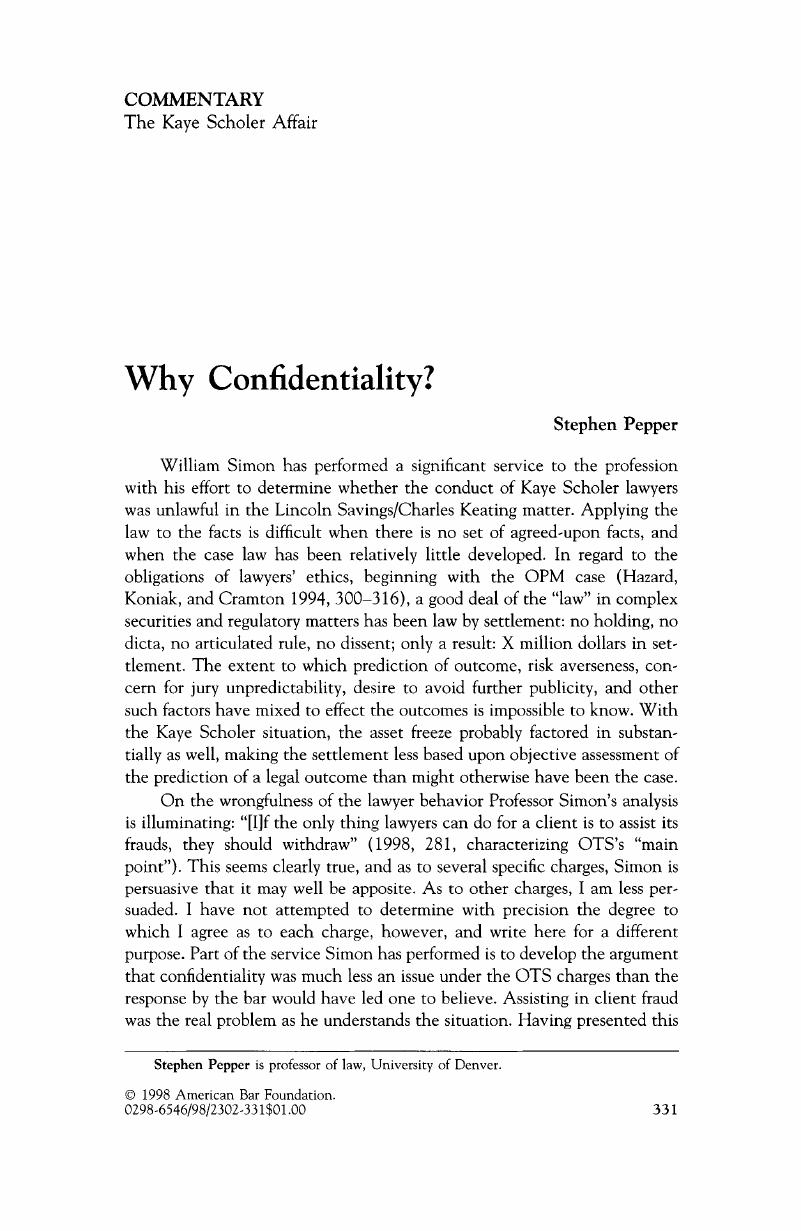No CrossRef data available.
Article contents
Why Confidentiality?
Published online by Cambridge University Press: 27 December 2018
Abstract
An abstract is not available for this content so a preview has been provided. Please use the Get access link above for information on how to access this content.

- Type
- “From the Trenches and Towers”
- Information
- Copyright
- Copyright © American Bar Foundation, 1998
References
Hazard, Geoffrey C. Jr., Koniak, Susan P., and Cramton, Roger C.
1994. The Law and Ethics of Lawyering. New York: Foundation Press.Google Scholar
Heller, Jamie G.
1994. Legal Counseling in the Administrative State: How to Let the Client Decide. Yale Law Journal
103:2503–2530.Google Scholar
Pepper, Stephen L.
1986. The Lawyer's Amoral Ethical Role: A Defense, a Problem, and Some Possibilities. American Bar Foundation Research Journal
1986:613–635.Google Scholar
Pepper, Stephen L.
1995. Counseling at the Margins of the Law: An Exercise in the Jurisprudence and Ethics of Lawyering. Yale Law Journal
104:1545–1610.Google Scholar
Simon, William H.
1988. Ethical Discretion in Lawyering. Harvard Law Review
101:1083–1145.Google Scholar
Simon, William H.
1998. The Kaye Scholer Affair: The Lawyer's Duty of Candor and the Bar's Temptations of Evasion and Apology. Law and Social Inquiry
23:243–95.Google Scholar




